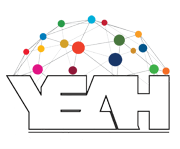
Subscribe to RSS Feed (Opens in New Window)
| 2021 | ||
|---|---|---|
| Wednesday, April 21st | ||
| 1:05 PM |
Jareth Marlise Díaz Cervantes, Universidad Peruana de Ciencias Aplicadas 1:05 PM - 1:01 PM The salinization of soils as a result of inadequatemanagement is a negative effect on theavailability of nutrients for plants. A complete randomizeddesign of four treatments and sevenreplications was developed from Pantanos de VillaWetland's soils: control, mycorrhiza, EMSaccharomyces and Bradyrhizobium sp. The inoculantswere incorporated into the soil, being 10and 30 days after sowing. At 45 days, parameters likeplant height, foliar, root and total dryweight were evaluated. Greater benefit in growth wasrecorded by autochthonous microbialactivity. Biotechnologies developed from native microbiotacan contribute to food security, foradaptability to climate change. |
|
| 1:15 PM |
Session 2B Modern Slavery in the textile circular economy...fashioning a way forward Paul Rogers, Monash University 1:15 PM - 1:24 PM This research analyses the expert opinion of fashionand textile industry stakeholders internationally, to understand what drives or hinders the purposeful re-engineering of India’s textile recycling industry to remediate its human and environmental impacts. The findings detail how stakeholder engagement has significantly decreased, as industry value chains have become more globalised in recent decades. By applying linear rather than circular principles when mapping value chain impacts, has ignored their responsibility to manage upstream and downstream textile waste. Ultimately, the recommendations of this research provide pragmatic and scalable recommendations for collaborative remedial action for effective industry change on a global scale. |
|
| 1:25 PM |
Session 2B The Colorado Natural Heritage Carbon Challenge David McCormick, Colorado State University 1:25 PM - 1:34 PM This project focuses on the home and office carbon footprint of Colorado Natural Heritage Program (CNHP) staff. This project will use data gathered from surveys, and online carbon tracking tools provided by the City of Fort Collins to calculate the carbon footprint of CNHP staff. Participants will then employ behavior change strategies, which have an associated carbon footprint reduction, to lower their footprint. Our project aims to track the best strategies for reducing carbon footprints and create a framework that could be re-applied. We will also investigate the effects of Covid-19 on carbon trends in related sectors to our framework. |
|
| 1:35 PM |
Session 2B Characterizing fungal inhibitors from drought-stressed switchgrass Sarvada Chipkar, Michigan Technological University 1:35 PM - 1:44 PM Development of economically viable and greener pathways to synthesize renewable energy has been an important research theme in recent years. Previously it was reported that drought experienced during the growth of switchgrass led to complete inhibition of yeast growth during fermentation. In this project, we characterized specific compounds that led to this inhibition by extracting the samples using solvents (i.e., water, ethanol, and ethyl acetate) to selectively remove potential inhibitory compounds and determining whether pretreatment affects the inhibition. A key goal of the project was to determine whether the microbial-inhibitors are plant-generated compounds, by-products of the pretreatment process, or a combination of both. |
|

